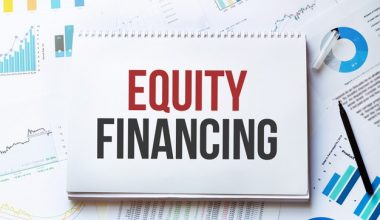Most investors are certainly aware that stocks are also known as equities. In addition, equity is a type of security. However, not every investor understands the distinction between Debt securities vs equity securities. In this article, we’ll be discussing the types of equity securities, examples, and backed securities. The legal definition of the term security may differ from one jurisdiction to the next. So, in general, let us define the term securities.
Securities are fungible and marketable financial instruments that are used to raise capital in both the public and private markets. Securities are widely regarded as tradable financial assets. The majority of securities are issued by institutions (usually corporations and governments) to raise funds. As a result, practically all securities are regarded as kinds of investment.
What Is Equity Securities?
Equity securities are shares of capital stock that reflect a shareholder’s ownership stake in a business, partnership, or trust. Shares of capital stock include both common and preferred stock. Your shares in equity securities reflect a portion of the issuing company’s ownership. In other words, you have a claim on a portion of the earnings and assets of the issuing corporation. If you possess 1% of the total shares, or security stocks, issued by a corporation, you own 1% of the controlling company. The holder of the shares is also entitled to a part of the issuing organization’s earnings. Equity shareholders are normally not entitled to monthly payments, but they can profit from capital gains. This happens when they sell the securities (especially when there’s an increase in the value).
Types of Equity Securities
There are two types of equity securities Common shares and preference shares:
Common Shares
Common shares are a type of stock that has voting rights and represents a company’s ownership interest. They entitle investors to a share of the company’s operating results, voting rights, and a claim on the company’s net assets in the event of liquidation.
Common shareholders have the ability to vote. Each share has one vote in statutory voting. Each shareholder gets one vote per share multiplied by the number of seats to be filled in cumulative voting. Shareholders can also direct their whole voting rights to certain candidates.
Callable and putable common shares are available. The term “callable” refers to the issuer’s right to buy back shares from investors at a set price by a certain date. Putable shares, on the other hand, allow investors to sell their shares back to the corporation at a predetermined price.
Preference Shares
When it comes to claiming a company’s earnings in the form of dividends and net assets. Upon liquidation, preference shares are favored above regular shares. Preference shares might be participating or non-participating, cumulative or non-cumulative.
- Participating: The right to receive the standard preferred dividend plus a bonus payout. This could be possible, if certain conditions are met, like as the company’s profits exceeding a particular threshold. Participating shares are entitled to an additional distribution of net assets in the event of a liquidation.
- Non-participating: The right to receive only a set amount of money as a dividend. There is no right to a share of a company’s increased profits.
- Cumulative: If the corporation does not pay dividends for one or more periods, dividends accumulate (add up). Unpaid dividends accrue are paid to preferred shares first before common shares in later years when the dividend is paid.
- Dividends are non-cumulative if a corporation chooses not to pay dividends for one or more periods. Preferred shares, on the other hand, take precedence over common shares whenever a dividend is paid. As a result, if all other factors are equal, a cumulative preferred share is worth more than a non-cumulative preferred share.
Preference shares that can be converted to common stock are known as convertible preference shares. When the shares are issued, the conversion ratio is indicated.
Are Equity Securities the Same as Stocks?
Equities, sometimes known as stocks, are ownership stakes in a corporation. To put it another way, if you invest in stocks, you are essentially purchasing shares of ownership in a company. When starting a new job, you could also be offered “equity” in the form of stock in the firm. That makes you a stakeholder in the business, or a shareholder.
Are Mutual Funds Equity Securities?
Mutual funds are considered equity securities, just like stocks, because investors buy shares that give them a piece of the fund as a whole.
Equity Securities Examples
The most common example of equity securities is common stock. This offers its owner a portion of the issuing entity’s residual value in the case of a liquidation. Preferred stock is a less common equity investment that may provide its owner with a quarterly dividend as well as other rights that give it preference over common stockholders. The stock option and the warrant are two variations on the equity security concept; both instruments allow their holders the right, but not the duty, to purchase shares in a firm at a predetermined price and over a predetermined period of time.
Equity securities also confer varying degrees of voting power on their holders in specific circumstances. This could be the appointment of a board of directors to act on behalf of the shareholders. A sufficiently high amount of equity securities ownership will provide the owner voting control over the company.
Debt Securities
Debt securities, also known as fixed-income securities, are money that has been borrowed and must be repaid according to terms. These terms will specify the amount borrowed, the interest rate, and the maturity date. In other words, debt securities are financial instruments that can be traded between parties, such as bonds/certificates of deposit (CDs).
Debt instruments, such as bonds and certificates of deposit, typically require the holder to make regular interest payments. As well as the repayment of the principal amount, and any additional contractual obligations. These securities are normally issued for a set period of time and then redeemed by the issuer.
The interest rate on a debt security is calculated using the borrower’s credit history, track record, and solvency (ability to repay the loan in the future). To compensate for the amount of risk taken, a lender would require a higher interest rate if the risk of the borrower defaulting on the loan was higher.
It’s worth noting that the dollar amount of debt instruments’ daily trading volume is substantially higher than that of stocks. The reason for this is that institutional investors, as well as governments and non-profit organizations, own the majority of debt securities.
Is a Stock a Debt or Equity?
Equity, also called “stock,” is a share of ownership in a business. Dividends are a way for the owner of an equity stake to make money. Dividends are a part of a company’s profits that are given back to its shareholders. If the market price of the stock goes up, the person who owns it could also make money by selling it.
Equity Securities
Shareholders’ ownership interests in a corporation are represented through equity securities. To put it another way, it’s an investment in an organization’s equity shares that allows you to become a shareholder.
Holders of equity securities differ from holders of debt securities in that the former are not entitled to regular payments, but they can profit from capital gains by selling the stocks. Another distinction is that equity securities give the holder ownership rights, making him one of the company’s owners, with a stake proportional to the number of shares purchased.
In the event that a company files for bankruptcy, equity investors can only share the interest that remains after all debt security holders have been paid. Dividends are frequently distributed to shareholders, who share the produced earnings from fundamental business operations, however, this is not the case for debtholders.
Equity Securities vs Debt Securities
Equity securities represent a claim on a corporation’s earnings and assets, whereas debt securities are investments in debt instruments. A stock, for example, is an equity security, whereas a bond is a debt security. In contrast, when a person purchases stock from a corporation, they are essentially purchasing a piece of the company.
- Debt securities imply a loan to the company, whereas equity securities indicate ownership in the company.
- The difference between equity and debt securities is that equity securities do not have a maturity date, but debt securities do.
- Debt securities offer a predetermined return in the form of interest payments, whereas equity securities have variable returns in the form of dividends and capital gains.
- Both securities have a face value and trade at a market value that could be higher or lower than the face value.
- Voting rights are granted to equity owners, but not to holders of debt securities.
Equity Backed Securities
Equity-backed securities, or Asset-backed securities”ABS,” are collections of loans that are packaged and sold as securities to investors, a process known as “securitization.”. It also is a type of financial instrument that is backed by an underlying pool of assets, typically debt-generating assets like loans, leases, credit card balances, or receivables.
An Overview
Equity-backed securities enable their issuers to raise funds for lending or other investing purposes. An ABS’s underlying assets are frequently illiquid and cannot be sold on their own. As a result, the issuer can make illiquid assets marketable to investors by pooling assets and constructing a financial instrument out of them, a process known as securitization. It also enables them to remove riskier assets from their books, lowering their credit risk.
Home equity loans, automotive loans, credit card receivables, student loans, and other expected cash flows could represent the underlying assets of these pools. ABS issuers are free to be as inventive as they want. Cash flows from movie income, royalty payments, aircraft landing slots, toll roads, and solar photovoltaics, for example, have been used to create asset-backed securities. An ABS can be used to securitize almost any cash-generating vehicle or situation.
Purchasing an ABS provides investors with the possibility of a revenue stream. The ABS allows them to invest in a wide range of income-generating assets, including some that aren’t available in any other investment, such as exotic ones.
Frequently Asked Question
What are examples of securities?
Stocks, bonds, preferred shares, and exchange-traded funds (ETFs) are some of the most prevalent types of marketable assets. Marketable securities can also include money market instruments, futures, options, and hedge fund investments.
Are equity securities the same as stocks?
Stocks and equity are similar since they both reflect ownership in an entity (business) and are traded on stock exchanges. By definition, equity refers to ownership of assets once a debt has been paid off. Stock is a broad term for tradable equity.
Which is better equity or debt securities?
Debt securities typically carry less risk than equity investments and provide a lesser potential return on investment. Debt investments, by definition, vary in price less than equities.






